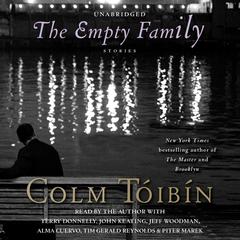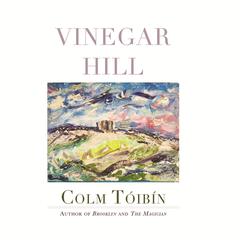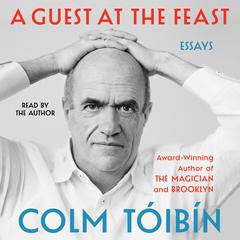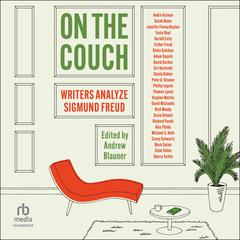 Play Audiobook Sample
Play Audiobook Sample
The South Audiobook
 Play Audiobook Sample
Play Audiobook Sample
Quick Stats About this Audiobook
Total Audiobook Chapters:
Longest Chapter Length:
Shortest Chapter Length:
Average Chapter Length:
Audiobooks by this Author:
Publisher Description
The first highly acclaimed novel from an “immensely gifted and accomplished writer” (The Washington Post), about an Irishwoman who creates a new life in post-war Spain.
In 1950, Katherine Proctor leaves Ireland for Barcelona, determined to escape her family and become a painter. There she meets Miguel, an anarchist veteran of the Spanish Civil War, and begins to build a life with him. But Katherine cannot escape her past, as Michael Graves, a fellow Irish émigré in Spain, forces her to reexamine all her relationships: to her lover, her art, and the homeland she only thought she knew.
The South is a novel of classic themes—of art and exile, and of the seemingly irreconcilable yearnings for love and freedom—to which Colm Tóibín brings a new, passionate sensitivity.
Download and start listening now!
"In the 1950s, a woman leaves Ireland and her husband and child and flees to Barcelona; she intends to become a painter. She meets a painter who is an anarchist and a veteran of the Spanish Civil War. They become lovers. Life unfolds over decades. This is an unsentimental story, nicely written."
— Martin (4 out of 5 stars)
Quotes
-
“Irish journalist Toibin’s compelling tale of love and art set in the United Kingdom and Franco’s Spain, makes for a rich and remarkable debut.”
— Publishers Weekly -
“A promising debut.”
— Kirkus Reviews -
“[An] exceptional first novel.”
— Library Journal
The South Listener Reviews
-
" I loved this book - when i finished reading it i started it again and i bought if for people as a gift. I think i was obsessed with it. The descriptions of the paintings and making the paintings are wonderful. Its emotional depth is extraordinary - but that's Mr Toibin for you "
— kate_robi, 2/13/2014 -
" Travels in Spain to escape a bad marriage and history only to end up in the midst of more terror and death. Interesting comparisons between 2 countries and their history of terrorism and the people who try to survive. Too many abandoned children. "
— Rosemary, 2/8/2014 -
" Sometimes I find myself in the mood for writing like Colm Toibin. His prose is quick and succinct. Not a ton of flowery language, not a ton of in depth character analysis, just good solid writing that's there and does its job well. A few things I liked -- the travel aspect (Ireland to Spain, oh boy), the art aspect, the sexual chemistry aspect, the history aspect (post WW2 Spain, Franco times). It's quick too -- a mere 200 pages that fly by in the blink of an eye yet leave you with something. "
— Emily, 2/1/2014 -
" I would be interested in the thoughts of others who read this. Through much of the book, the protagonist was exasperatingly self-focused and self-indulgent. As a mother, I found her indifference to her own children painful and maddening. "
— Catherine, 1/13/2014 -
" I read this book in the "winter of my loneliness" when I was exiled in North Carolina. The bleak starkness of the prose complimented my mood and the fact that the heroine has fled Ireland for the harsh climes of Spain resonated. "
— Sarah, 1/4/2014 -
" Been meaning to read this author. This is his first novel. I'm really enjoying it so far. The protagonist is a woman who leaves her husband and son in 1950 to paint in Spain. It's hard to like her, but I want to see what she does next. "
— Vanessa, 12/9/2013 -
" For a first novel this is fantastic but not Toibin's best. I enjoyed the tale of Katherine Proctor and the way she slowly and gently comes to term with her past decisions. It was also interesting to see how themes that Toibin explores in later novels and short stories were here in this first novel. "
— Sharon, 12/8/2013 -
" Well...I liked the beginning, but then it just got weird. I dunno. I skimmed a lot of the end just to find out what happened. "
— Monica, 11/26/2013 -
" So so story, but interesting brief glance at Franco's Spain. "
— Dara, 11/1/2013 -
" Loved the travel to and through the Pyrenees, brought back good memories of traveling in this area in 1976. Difficult to grasp why this young woman would abandon her only child and will need to think more about how her solitary travel was so essential to her well-being. "
— Greta, 10/21/2013 -
" Excellent book for anyone interested in US history... "
— Donna, 10/4/2013 -
" Colm Toibin writes of a young woman dissatified with her marriage, who leaves husband and child to live and paint in Spain. Her life in Spain is not idyllic and eventually she returns to Ireland. During the entire book there are wonderful descriptions of her paintings. "
— Linda, 9/23/2013 -
" A total disappointment for me. Storytelling is dull, the protagonist is irritating. The characters are not deep, almost like shadows. I felt that the author is trying to tell about Katalan & Irish issues but the book was so boring I couldn't keep up with that. "
— Merope, 9/4/2013 -
" A book where he manages to leave Ireland and retain the magic of his writing. Another winner for me. "
— Kerrie, 8/21/2013 -
" This was definitely okay enough for me to try Brooklyn. "
— Kelly, 8/14/2013 -
" Beautifully atmospheric, but I just couldn't get involved, whether due to unsympathetic characters or non-suspenseful plot or whatever. "
— Hal, 4/14/2013 -
" Well done. Brooklyn is his best novel that I have read so far. "
— Beth, 2/10/2013 -
" This quiet, melancholy debut novel by the future author of "Brooklyn" follows a female Irish painter in exile in Spain and then back home in Ireland. "
— Keith, 1/30/2013
About Colm Tóibín
Colm Tóibín is an Irish novelist, short story writer, essayist, playwright, journalist, critic, and poet. His novel The Master won the International IMPAC Dublin Literary Award, the Prix du Meilleur Livre Étranger, the Los Angeles Times Book Prize for Fiction, and was short-listed for the Man Booker Prize. His other books of fiction have earned similar awards and have been translated into numerous languages. He lives in Dublin, Ireland.





























